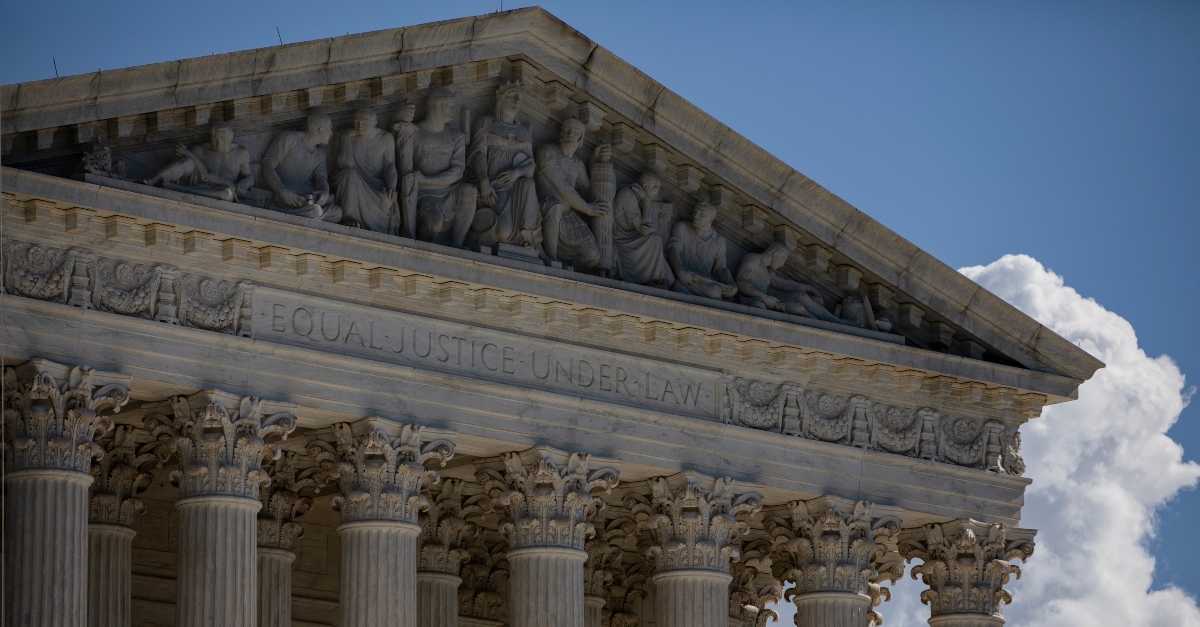
Civil liberties groups joined forces with George W. Bush’s former solicitor general in petitioning the Supreme Court for transparency over one of the few corners of the U.S. judiciary associated with covert operations: the Foreign Intelligence Surveillance Court (FISC) and the appellate jurisdiction reviewing its denials, the FISCR.
“Public access to these opinions is critical to the legitimacy of the FISC and FISCR, to the legitimacy of the government’s surveillance activities, and to the democratic process,” Bush’s former solicitor general Theodore B. Olson wrote in a 33-petition on Monday, joined by lawyers for the American Civil Liberties Union, Knight First Amendment Foundation and Yale Law School’s Abrams Institute.
Nestled in a restricted room of the E. Barrett Prettyman Federal Courthouse in Washington, the FISC had been designed to restrain the intelligence community after the Church Committee found unconstitutional surveillance against U.S. citizens in 1976. Some two years later, Congress passed the Foreign Intelligence Surveillance Act of 1978, which created the FISC (also known as the FISA Court) and granting it the power to grant or deny government applications.
In the wake of disclosures by former National Security Contractor Edward Snowden, the FISC has been criticized of being little more than a “rubber stamp.”
Together with Olson, the First Amendment groups argue that more sunlight would “allow the public to understand the government’s surveillance powers and practices, promote confidence in the FISA system, strengthen democratic oversight, and improve judicial decision-making.”
“Transparency would also give Americans, and Congress, the opportunity to press for reforms. While national security concerns may sometimes require redaction, the First Amendment right of access is ‘qualified’ precisely to permit such exceptions where justified,” the petition states.
For a little more than the court’s first three decades of operations (between 1979 and 2012), federal agencies submitted 33,900 requests—meeting in secret without any adversarial proceedings—to the court, which denied only 11 during that time, the Wall Street Journal reported in June 2013.
That 99.97 percent “win rate,” described by the Stanford Law Review as “enviable even to the Harlem Globetrotters,” became public roughly one month after Snowden’s leaks put newfound scrutiny upon the secret surveillance court and included, among other documents, a FISC opinion authorizing mass surveillance. The court has since been regarded with suspicion both on the political left and the pro-Donald Trump right.
In October 2013, the Washington Post reported that even some within the court wanted more public scrutiny: “Several members of the intelligence court want more transparency about the court’s role to dispel what they consider a misperception that the court acted as a rubber stamp for the administration’s top-secret spying programs.”
The ACLU cited that line to make the argument that the time has come to open up the courts.
“In the past, unnecessary secrecy relating to FISC opinions has frustrated congressional oversight,” the petition states. “In some instances, secrecy has allowed the government’s surveillance policies to become unmoored from the democratic consent essential to their legitimacy.”
The passage of the USA Freedom Act in 2015 required the government to review significant FISC opinions for public release, but the court played no part in this process.
“Informed debate about government surveillance is impossible if the public doesn’t have access to the court opinions that evaluate the government’s surveillance activities,” the Knight Institute’s executive director Jameel Jaffer wrote in a statement. “Public access to these opinions will allow the public to better understand what the court has authorized and what the surveillance agencies are doing. Of course, it may sometimes be necessary to redact these opinions, but here, as in other contexts, the courts must ensure that redactions satisfy First Amendment standards. The Foreign Intelligence Surveillance Court isn’t exempt from the First Amendment rules that apply to other courts.”
The Supreme Court petition asks to review decisions of the FISC and FISCR last year finding those courts lacked jurisdiction to even consider whether the First Amendment guaranteed a right to public access for those courts.
[Image via Samuel Corum_Getty Images]